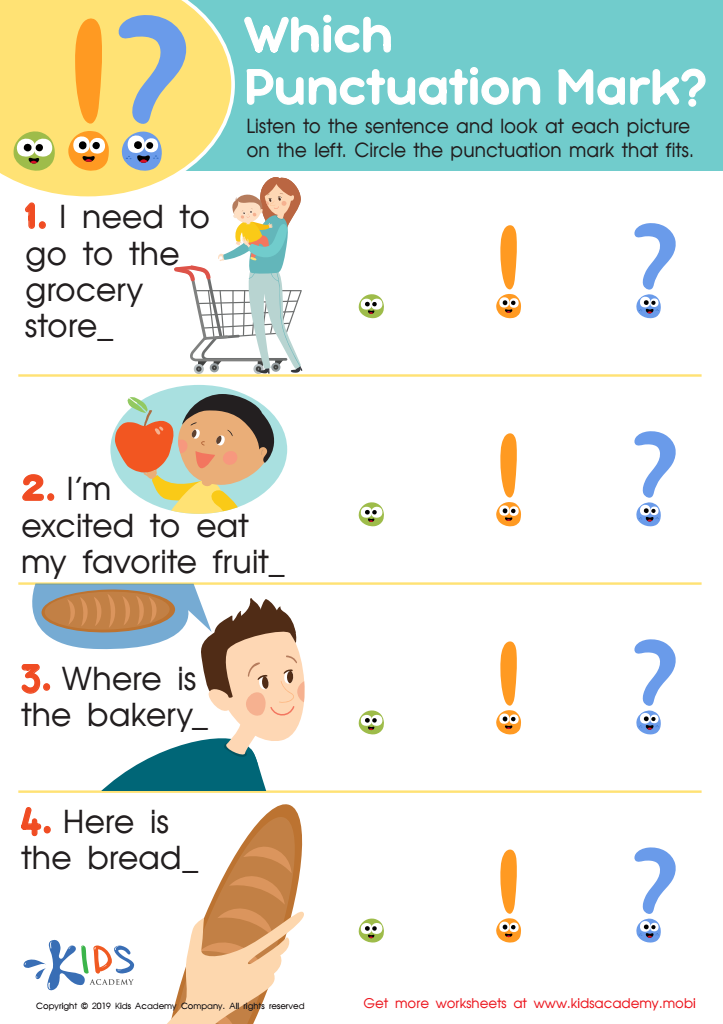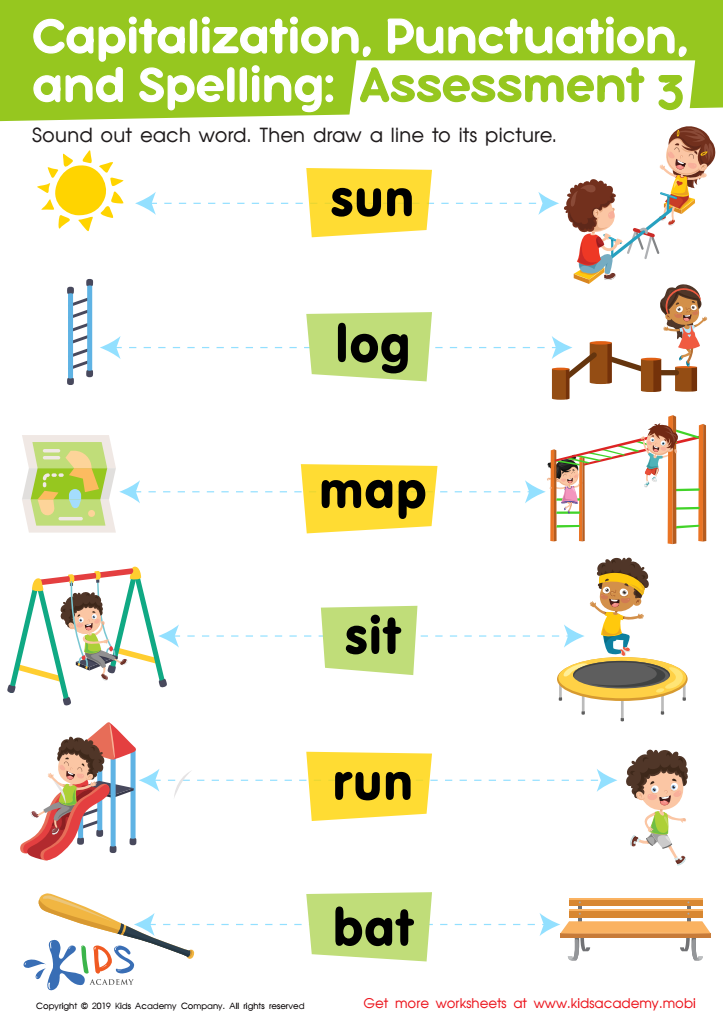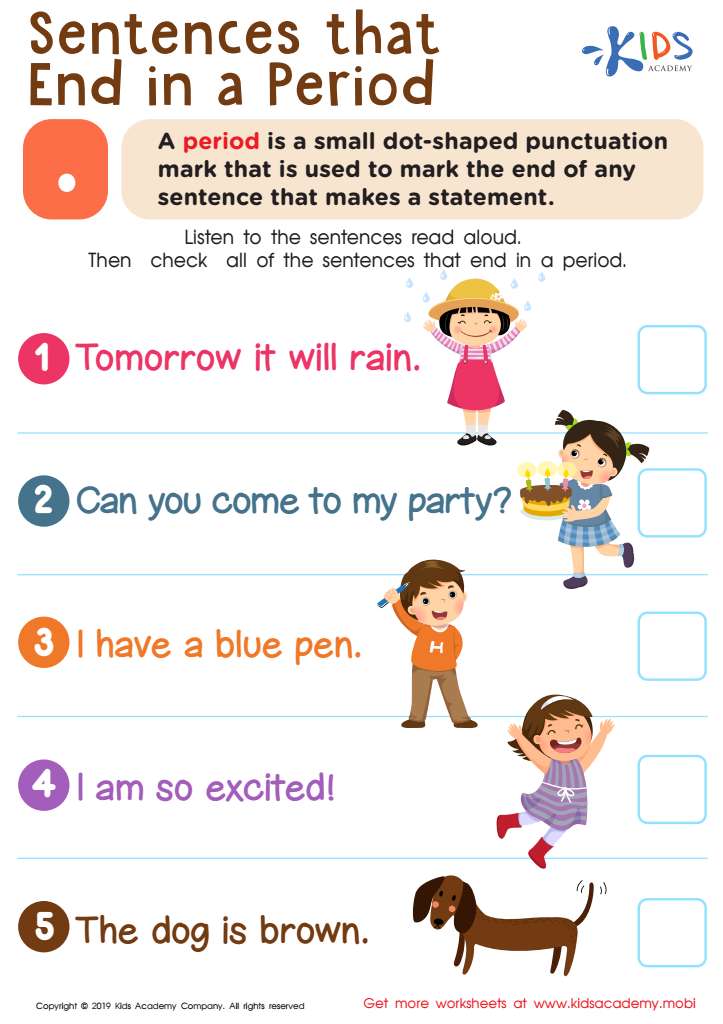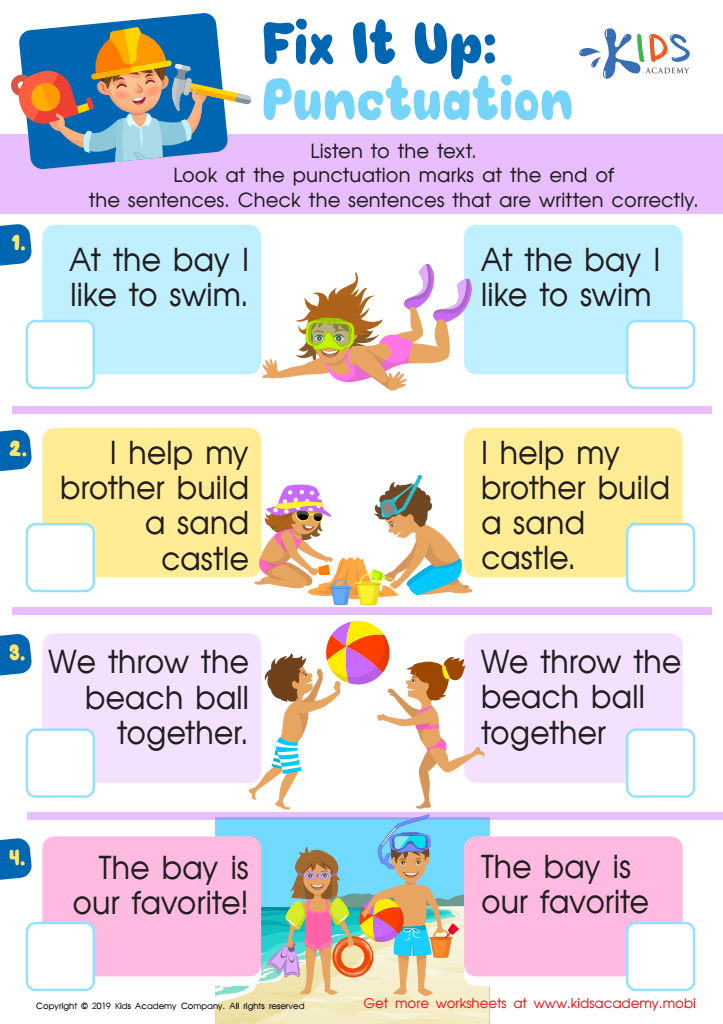Punctuation understanding Writing Worksheets for Ages 5-6
4 filtered results
-
From - To
Enhance your child's writing skills with our Punctuation Understanding Writing Worksheets for ages 5-6! Designed for young learners, these engaging worksheets help students master essential punctuation marks, including periods, question marks, and exclamation points. Each activity encourages creativity while reinforcing the importance of punctuation in sentence structure. Children will enjoy diverse exercises, from filling in the blanks to matching punctuation with pictures. Our printable worksheets make learning fun and interactive, ensuring your child develops a solid foundation in writing. Perfect for at-home learning or classroom activities, these resources promote literacy and help prepare kids for future writing success.


Which Punctuation Mark Worksheet


Capitalization. Punctuation. Spelling. Assessment 3 Worksheet


Sentences That End in a Period Worksheet


Fix Punctuation Worksheet
Punctuation is a fundamental aspect of writing that greatly affects how young children communicate ideas. For ages 5-6, mastering basic punctuation marks, such as periods, commas, and question marks, is crucial for several reasons. Firstly, punctuation serves as the roadmap for reading; it helps children understand where thoughts begin and end, thus promoting better comprehension and fluency. Engaging with punctuation also encourages young learners to express themselves clearly and effectively, fostering their confidence in writing.
Additionally, understanding punctuation aids in developing critical thinking skills. Children learn to consider the structure of their sentences and the meaning behind their words, enhancing their ability to convey emotions and intentions accurately. Parents and teachers play a vital role in this process; by emphasizing the importance of punctuation through games, storytelling, and writing exercises, they create a supportive environment for exploration and learning.
Moreover, early mastery of punctuation sets the stage for more complex writing skills in the future. When children grasp these concepts early on, they are better prepared for advanced reading and writing tasks later in their education. Thus, making punctuation fun and relevant should be a priority for both parents and educators to ensure a solid foundation for children’s literacy development.
 Assign to My Students
Assign to My Students




















